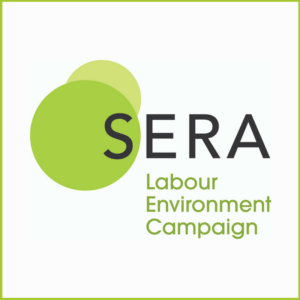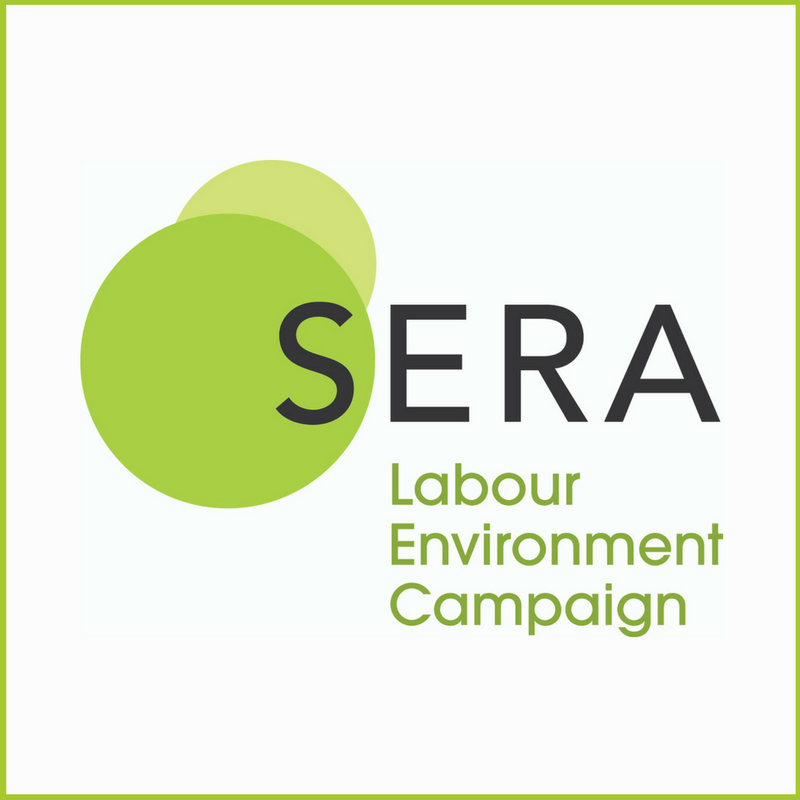Published today on Labour Net, this article by four members of SERA, relates to serious shortcomings of that organisation and puts forward ideas to democratise it which have also been the concern of Red-Green Labour supporters for a number of years.
Climate in crisis – SERA must up its game
By Sam Mason, Fliss Premru, Coral Jones and Terry Conway
 In 2021 the global environmental movement, in all its diversity, came together around COP26 in Glasgow and will attempt to do so again for COP27 in Egypt.
In 2021 the global environmental movement, in all its diversity, came together around COP26 in Glasgow and will attempt to do so again for COP27 in Egypt.
There is broad agreement within this movement that we need radical action to halt and reverse climate change, which is inflicting death, disease, displacement and poverty on billions of people around the world and the broader degradation of the natural world leading to mass extinctions and the depletion of biodiversity.
Despite all the talks, fossil fuels remain the dominant driver of the global economy and greenhouse gas emissions continue to rise. As the Committee on Climate Change reported, the UK may be leading on targets but lacks a real programme to deliver on these, including a homes insulation programme, one of the essential steps to reducing consumption and addressing energy bills.
SERA – Socialist Environment and Resources Association – is the Labour Party’s only environmental affiliate, and it has a privileged position. It needs to play the positive role in the climate and environmental movements which its original founders envisaged and which it has so singularly failed to do in recent years.
There were problems with the recent ballot for the Executive in that candidates’ names were wrong or missing and statements were muddled. Many members did not receive notice of the AGM, scheduled for 2nd July, and/or the ballot papers and then had queries to the office around this ignored. Some issues were resolved just before the AGM but others were never even acknowledged.
The elections were cancelled by the Executive eight days before the AGM. The next day members were told the Executive would move a motion to adjourn this Annual General Meeting to recommence on an unspecified new date ahead. Come the morning of 2nd July, the motion to adjourn was moved by the chair, Melanie Smallman, who refused to take other proposals which would have allowed the meeting to reach the political part of the agenda or even allow debate on the motion itself. This shows a failure to understand the urgency of the moment we are in. It pushes back SERA members’ ability to campaign in the labour movement for the responses we need to the climate and ecological emergency.
The rapid rise of Labour for a Green New Deal in 2019 and its victory at Conference that year demonstrates the huge well of potential support within the Labour Party, and the labour movement as a whole, for meaningful environmental action. Yet SERA membership lingers in the low hundreds rather than the many thousands it could be and there are almost no active SERA branches anywhere in the country. SERA is practically invisible both within the environmental movement and to Labour activists.
We see a lack of engagement by SERA with its existing members as a major part of the problem. It has certainly done some good work, but it operates behind the scenes with no structures or mechanisms to draw on the skills of its members or facilitate a dialogue between its members and Executive, let alone between members in different areas. It seems to believe that a few individuals whispering into the ears of shadow cabinet members is all that is needed. It lacks any kind of discussion bulletin, newsletter or discussion list to enable SERA members to develop policy collectively and any strategy to take our arguments into every Constituency Labour Party and the wider trade union movement.
The fiasco of the recent elections for officers which have been cancelled, re-run and then cancelled again, is partly symptomatic of a wider malaise in SERA. It is a problem of a top-down organisation divorced from its own membership and robust mechanisms of democratic scrutiny.
There is the basis for a broad and strong movement against climate change and environmental devastation, but this will only achieve its aims by an active public campaign, not by private chats with decision makers. The SERA Executive need to urgently set a new timetable for the elections and AGM, ensuring the integrity of the original ballot constituency and ensure the election is carried through by an independent, neutral body.
We want to see SERA return to its radical campaigning roots and we propose the following three-point plan as the basis for such a transformation.
Democratise SERA
We need an internal discussion list to air ideas, share best practice and debate environmental issues. There is a wealth of untapped experience, talent and expertise within SERA which must be shared.
SERA should have a council drawn from members in all parts of the country meeting regularly, online or in person, to direct its work.
Build the membership
We should aim for a mass membership SERA with active branches in at least every large town, city and region as well as in the CLPs. The role of the SERA office should be to encourage and support the formation of SERA groups and provide resources where members in a particular area wish to set one up.
Turn SERA outwards to the movement
SERA members are often involved in local campaigns and other environmental campaigns and groups, often giving leadership and guidance, but never under the banner of SERA. This should change. SERA publications and events should be topical and aimed at a much wider audience than the Labour Party.
The SERA website should carry frequent campaigning articles taking up such hot topics as the Silvertown Tunnel, airport expansion, the Edmonton incinerator, etc. – all campaigns where Labour Party and trade union members, some already in SERA, have been taking a lead.
The authors are candidates for SERA’s executive.




One thought on “Climate in crisis – SERA must up its game”